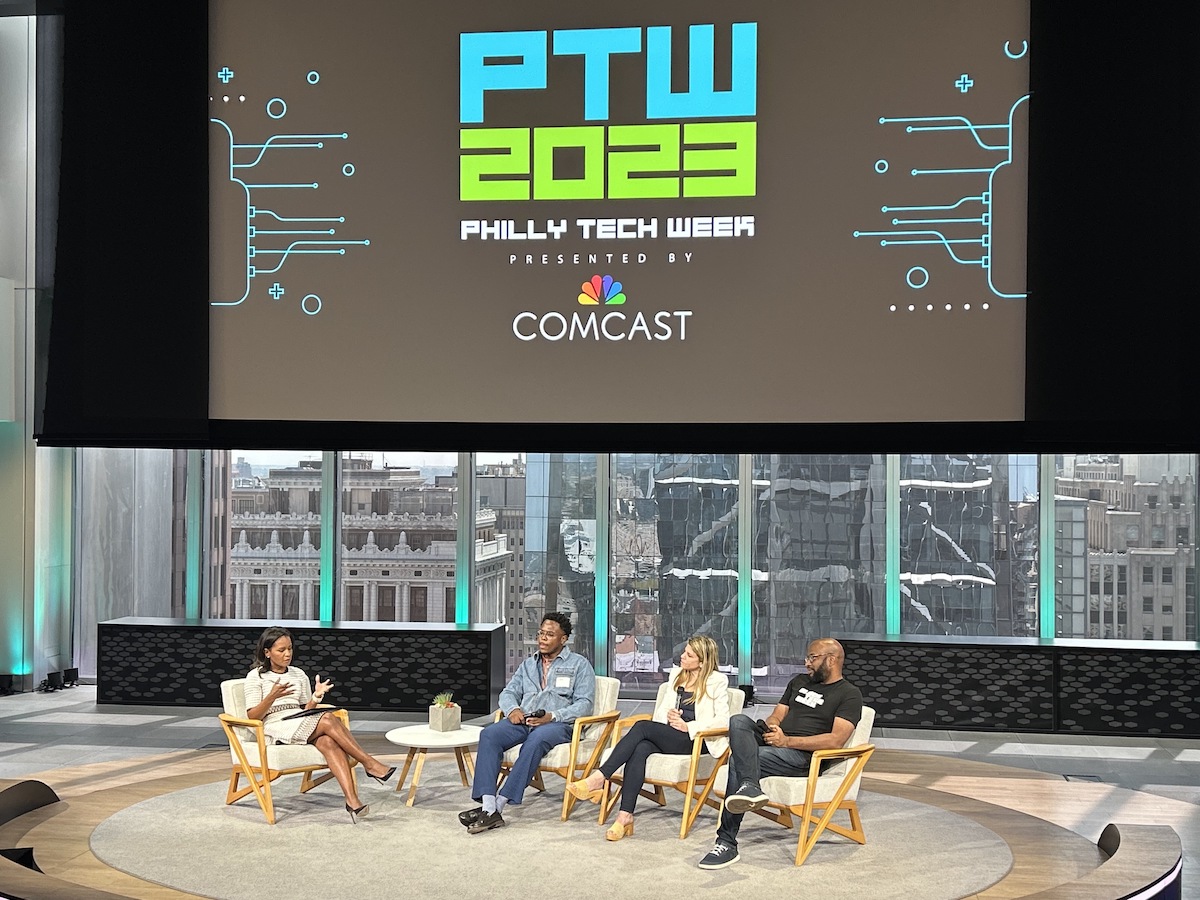Since the pandemic’s start, the footprint for where a local tech founder may raise venture capital has expanded exponentially. You no longer need to hop on a plane to meet with an investor when you can close a deal on Zoom, as Technical.ly heard several times over the last three years. Companies from regions like Philly are getting more VC from outside investors than ever before.
In this case, does a local tech ecosystem matter?
It sure does, a handful of tenured investors said at Technical.ly’s Builders Conference during Philly Tech Week 2023 presented by Comcast. The pandemic globalized the investing world, but it also gave smaller or emerging tech hubs a chance to grow. The pressure to build startups in either New York or San Francisco lifted a bit, and cities like Philadelphia, Pittsburgh, San Diego and Chicago rose in the ranks of global startup ecosystems.
Karl Fowlkes, an entertainment lawyer and investor in Newark, New Jersey, said you can’t discredit the flexibility that remote work afforded us. But individuals’ ability to source opportunities and add value to their community is certainly place-based. Newark is working class, but there’s a growing tech scene, which Fowlkes said he wants to pour into.
“You can actually work anywhere for sure,” he said. “But you know, your purpose of who you are and where you’re working, you know where that is, and where you’re impacting really, really matters.”
How regions can support founders
Brian Brackeen, a cofounder and investor-in-residence of startup resources org Lightship, also advocated for the smaller cities. Lightship started as a small program in Cincinnati, but has turned into a multi-city initiative aiming to educate founders from diverse backgrounds to help them grow their venture-backable businesses. The org recently took its show on the road, visiting Providence, New York City, Philadelphia, Baltimore and DC, keeping its eyes out for regions where it could add programming.
Brackeen said there’s not a question of if tech economies can exist in cities everywhere, it’s a question of if that city will have the resources to support it. He noted that the highest numbers of new businesses in the last few years are coming from Black women, a population he and Lightship aim to invest in.
“They’re highly educated, right? They want to use that education to support themselves. They’re tired of making someone else rich,” he said. “There’s a long history of this country of Black women making their not-so-impressive tall boss look more impressive, right? So they’re taking their future and doing something with it. The challenge is, will there be a venture capital or the support or the community on the other side of that bet on themselves, to help them to get to the higher level?”
There are a lot of outside factors like affordable housing and quality K-12 education that can help a region get its tech ecosystem off the ground, Brackeen said.
Fowles agreed — “You can’t overvalue the the cost of life.”
Culture (and parties) matter
When it comes to building a successful ecosystem in one of these regions, companies must must be really intentional about their culture, said Allison Goldberg, SVP and managing partner of Comcast Ventures.
“If you’ve got leaders who set a vision that’s inspiring and interesting, that attracts talent,” she said.
And with geography and demographics of the workforce changing, building a community where people can rely on and learn from each other is vital, Goldberg said. She called back to Technical.ly CEO Chris Wink’s earlier keynote that mentioned the role parties play in tech ecosystems, saying these connections don’t have to be a big, flashy events. Getting groups together through common interests, whether it be in specific kinds of technologies or new industry disruptors, is a strong foundation.
“I think community events are a big driver of it — just feeling part of a community, and feeling that you belong in the community, and that there are people out there in your geo that are going to help you build your business or help you fund your business or help you with the technology problem you might have, whatever it is,” Goldberg said. “I think it’s really important to all these, sort of, burgeoning tech ecosystems.”







